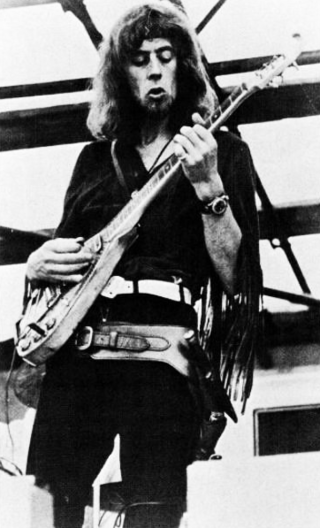
John Mayall & the Bluesbreakers were an English blues rock band led by multi-instrumentalist, singer and songwriter John Mayall. The band has been influential as an incubator for British rock and blues musicians. Many of the best known bands to come out of Britain in the 1960s and 1970s had members that came through the Bluesbreakers at one time, forming the foundation of British blues music that is still played heavily on classic rock radio. Among those with a tenure in the Bluesbreakers are guitarists Eric Clapton, Peter Green and Mick Taylor, bassists John McVie, Jack Bruce and Tony Reeves, drummers Hughie Flint, Aynsley Dunbar, Mick Fleetwood and Jon Hiseman, and numerous others.

John Brumwell Mayall was an English blues rock musician, songwriter and producer. In the 1960s, he formed John Mayall & the Bluesbreakers, a band that has counted among its members some of the most famous blues and blues rock musicians. A singer, guitarist, harmonica player, and keyboardist, he had a career that spanned nearly seven decades, remaining an active musician until his death aged 90. Mayall has often been referred to as the "godfather of the British blues", and was inducted into the Rock and Roll Hall of Fame in the musical influence category in 2024.

Richard Malden Heckstall-Smith was an English jazz and blues saxophonist. He played with some of the most influential English blues rock and jazz fusion bands of the 1960s and 1970s. He is known for primarily playing tenor, soprano, and baritone saxophones, as well as piano, clarinet and alto saxophone.
The Graham Bond Organisation (GBO) were a British jazz/rhythm and blues group of the mid-1960s consisting of Graham Bond, Jack Bruce (bass), Ginger Baker (drums), Dick Heckstall-Smith and John McLaughlin (guitar). They recorded several albums and further recordings were issued when the group's members achieved fame in progressive rock and jazz fusion. On original releases, the spelling of the band's name varied between the British "S" and the American "Z".

Colosseum are an English jazz rock band, mixing blues, rock and jazz-based improvisation. Colin Larkin wrote that "the commercial acceptance of jazz rock in the UK" was mainly due to the band. Between 1975 and 1978 a separate band Colosseum II existed playing progressive rock.
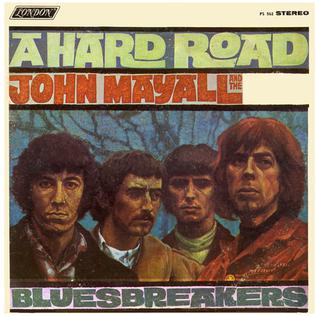
A Hard Road is the third album recorded by John Mayall & the Bluesbreakers, released in 1967. It introduced Peter Green on lead guitar following the departure of Eric Clapton, and also featured John McVie on bass, Aynsley Dunbar on drums and John Almond on saxophone. Tracks 5, 7 and 13 feature the horn section of Alan Skidmore and Ray Warleigh. Green additionally sings lead vocals on "You Don't Love Me" and "The Same Way". The cover art and the original LP sleeve design are by Mayall.
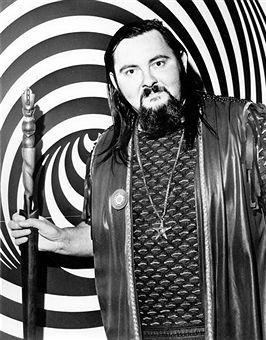
Graham John Clifton Bond was an English rock/blues musician and vocalist, considered a founding father of the English rhythm and blues boom of the 1960s.

Philip John Albert "Jon" Hiseman was an English drummer, recording engineer, record producer, and music publisher. He played with the Graham Bond Organisation, with John Mayall & the Bluesbreakers and later formed what has been described as the "seminal" jazz rock/progressive rock band, Colosseum. He later formed Colosseum II in 1975.

Valentyne Suite is the second album released by the band Colosseum. It was Vertigo Records' first album release, and reached number 15 in the UK Albums Chart in 1969. The album peaked at number 18 in Australia in 1970.

LiveS The Reunion Concerts 1994 is a live album by English progressive jazz-rock band Colosseum. It includes two tracks from their reunion concert at the Zelt-Musik-Festival in Freiburg, Germany and six tracks from the second reunion concert at the E-Werk in Cologne, Germany.

Crusade is the fourth album and third studio album by the British blues rock band John Mayall & the Bluesbreakers, released on 1 September 1967 on Decca Records. It was the follow-up to A Hard Road, also released in 1967. As with their two previous albums, Crusade was produced by Mike Vernon. The album was the first recordings of the then-18-year-old guitarist Mick Taylor.
Keith "Keef" Hartley was an English drummer and bandleader. He fronted his own band, known as the Keef Hartley Band or Keef Hartley's Big Band, and played at Woodstock. He was later a member of Dog Soldier, and variously worked with Rory Storm, the Artwoods and John Mayall.
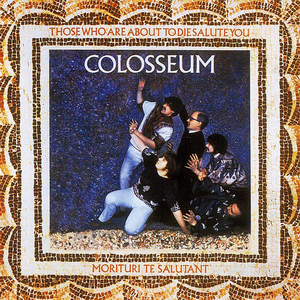
Those Who Are About to Die Salute You is the debut album by Colosseum, released in 1969 by Fontana. It is one of the pioneering albums of jazz fusion. The title is a translation of the Latin phrase morituri te salutant that according to popular belief, gladiators addressed to the emperor before the beginning of a gladiatorial match.

Halfbreed is the debut album by the Keef Hartley Band. The band was formed when Keef Hartley left John Mayall's band after touring and playing on seven albums, including being the only performer besides Mayall on The Blues Alone. Halfbreed includes two spoken passages featuring Mayall, as well as several notable British jazz-rock players.

Back to the Roots is a 1971 double album by John Mayall released on Polydor. Recording sessions took place both in California and London where Mayall invited some former members of his band, notably guitarists Eric Clapton and Mick Taylor. At the end of the 1980s Mayall remixed some tracks and issued them along with some of the older material as Archives to Eighties. An expanded two-CD version of Back to the Roots now includes both the original and later remixed versions of the tracks.
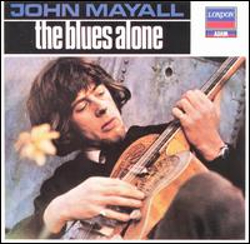
The Blues Alone is a 1967 electric blues album recorded by John Mayall on which he recorded all the parts himself, with the exception of percussion which was provided by longtime collaborator Keef Hartley.
Anthony Robert Reeves is an English bass guitarist/contrabassist, noted for his "distinctive and complex bass sound" and use of electronic effects.

Looking Back is the seventh album released by John Mayall in August 1969 by Decca Records. The album features songs by both John Mayall's Bluesbreakers and John Mayall solo work. The album reached No. 79 on the Billboard 200. Confusingly, there are two different albums with the title "Looking Back": a Decca UK release as a single album and a Decca Germany release as a double album. Later issues on CD would use the Deram label.

Thru the Years is a compilation album of music by John Mayall released in October 1971 by Decca Records in the U.K. and London Records in the U.S.A. The album was the second compilation to be issued by Decca/London with Mayall's blessing, although his contract with them had ceased. It features a mixture of previously unissued songs or non-album tracks that had only been released as singles.
















